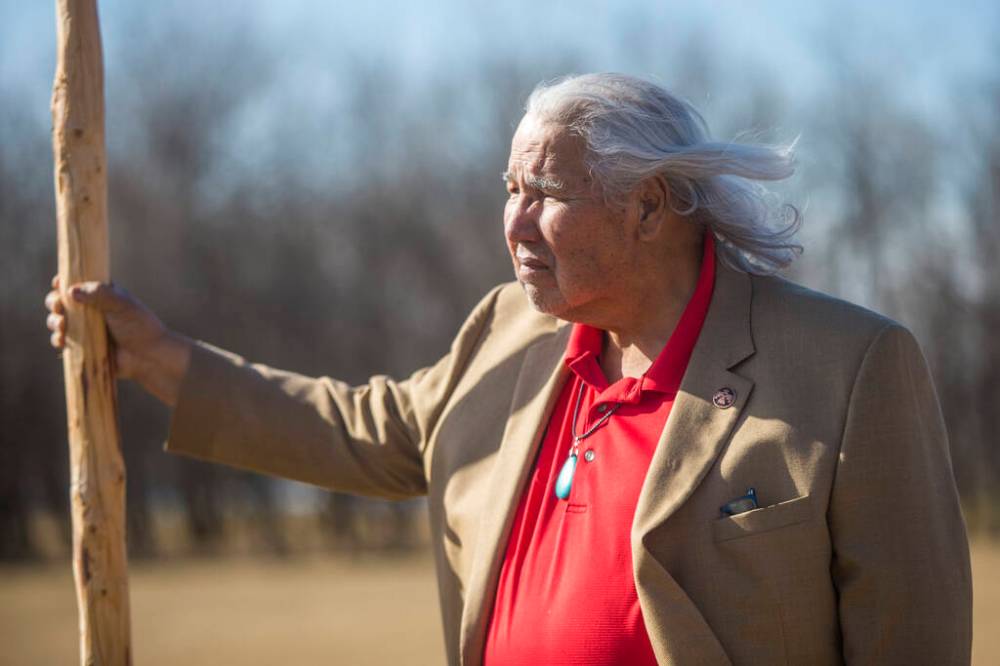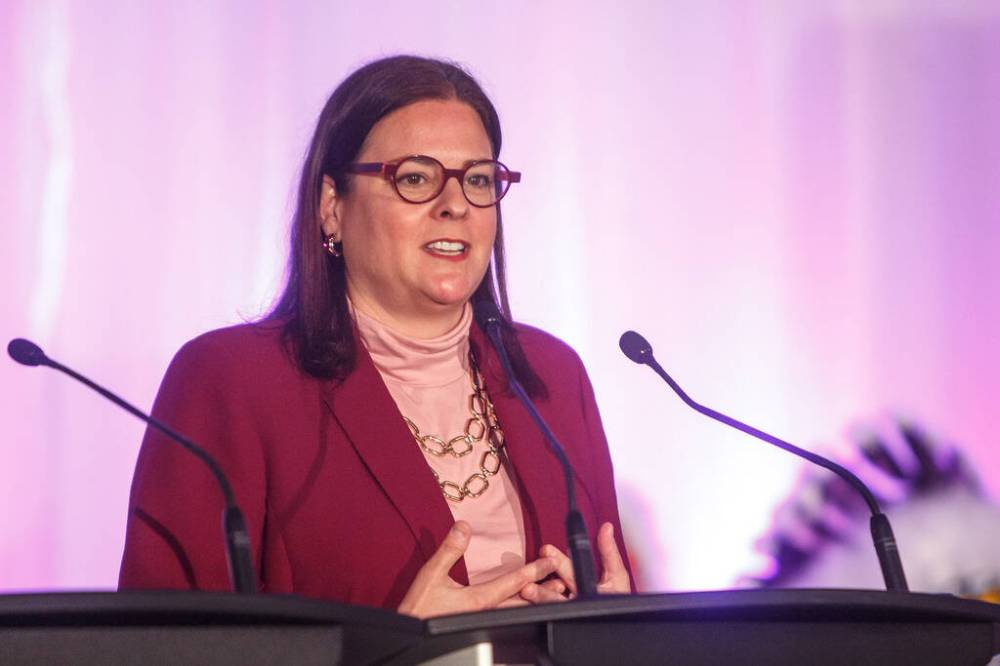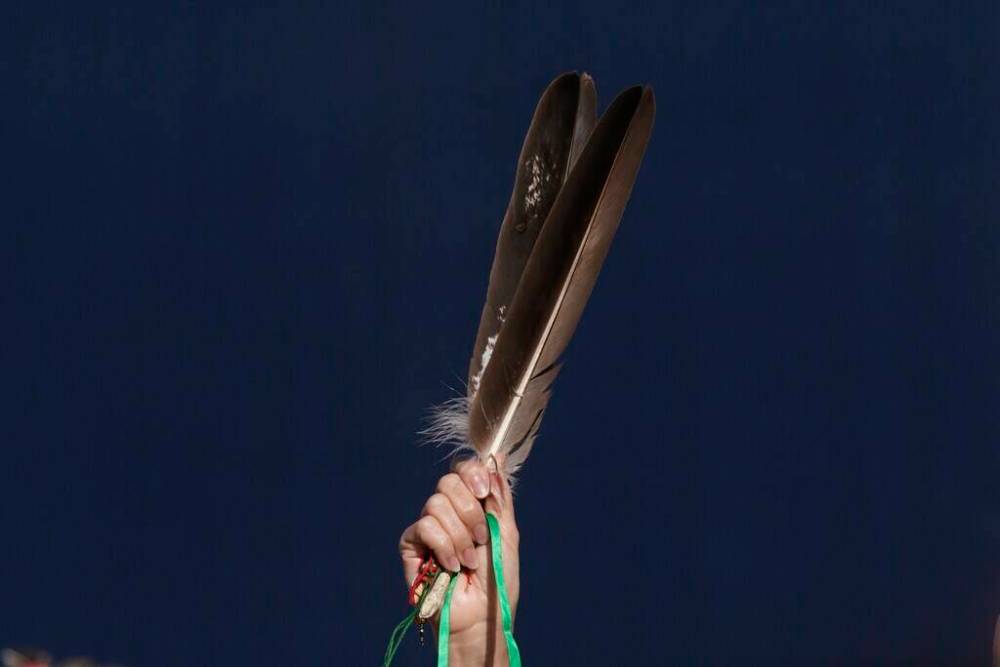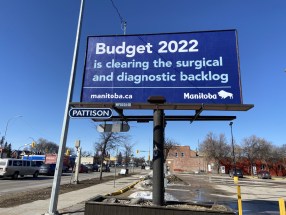Province is out of step on reconciliation
Read this article for free:
or
Already have an account? Log in here »
To continue reading, please subscribe:
Monthly Digital Subscription
$19 $0 for the first 4 weeks*
- Enjoy unlimited reading on winnipegfreepress.com
- Read the E-Edition, our digital replica newspaper
- Access News Break, our award-winning app
- Play interactive puzzles
*No charge for four weeks then billed as $19 plus GST every four weeks. Offer only available to new and qualified returning subscribers. Cancel any time.
Read unlimited articles for free today:
or
Already have an account? Log in here »
Hey there, time traveller!
This article was published 25/04/2022 (975 days ago), so information in it may no longer be current.
The day before a provincial election was called in March 2016, Manitoba’s legislative assembly unanimously approved Bill 18, the Path to Reconciliation Act.
It was a rare moment in provincial politics when MLAs from all parties laid down their partisan arms and collaborated on a matter of urgent importance to Manitobans. The bill was fast-tracked to ensure it was proclaimed into law before an expected election the following month. It was a co-operative effort that, procedurally, required the support of all parties.
A week earlier, MLAs heard from presenters on the bill at public hearings. Murray Sinclair, former chair of the Truth and Reconciliation Commission, was among them. He supported the bill and suggested amendments to strengthen it — changes that were adopted by legislators.

Mr. Sinclair reminded the legislative committee reviewing the bill that reconciliation is not just about Indigenous people healing themselves: “Governments have a singular obligation to lead, because governments have, through legislation, done the most damage where Aboriginal people are concerned,” he said, adding that the need for concrete action is critical.
“Reconciliation is not a hard concept to understand,” said Mr. Sinclair. “It’s kind of like a dance: we each have to follow our own movements, but from time to time, we actually have to hang on to each other and touch in order to make it work.”
“Reconciliation is not a hard concept to understand… It’s kind of like a dance: we each have to follow our own movements, but from time to time, we actually have to hang on to each other and touch in order to make it work.” – Murray Sinclair
Although the bill was sponsored by then-NDP minister of aboriginal and northern affairs Eric Robinson, it was enthusiastically endorsed by all members of the legislative assembly.
Kelvin Goertzen, the official Opposition house leader at the time for the Progressive Conservative party (and now justice minister), said passing Bill 18 “can’t just be talk; there has to be action with it.”
“It will be important that whoever is in government continues to look and adhere to the issues of this particular bill, not just the letter of the bill, but the spirit of the bill,” he said.
Six years later, there has been very little action. The PC government, under both former premier Brian Pallister and current Premier Heather Stefanson, has almost completely ignored its obligations under the act, according to a report released last week by Auditor General Tyson Shtykalo.

The legislation requires the province to develop a strategy to implement a framework for reconciliation within government, guided by the calls to action from the Truth and Reconciliation Commission. All cabinet ministers are required to take specific measures to advance reconciliation within their departments. Survivors of residential schools are supposed to be asked for their input. None of those steps has been taken.
Most Indigenous leaders in Manitoba, when surveyed, said provincial officials do not adequately consult Indigenous people, nor show them the respect they deserve, the report also found.
The Stefanson government’s response to the auditor general’s findings has been, at best, half-hearted. While the province has accepted all of Mr. Shtykalo’s recommendations, Indigenous Reconciliation Minister Alan Lagimodiere saw fit to respond publicly to the report with only a brief email statement containing mostly vague commitments. Premier Stefanson, meanwhile, said her government plans to listen to the Indigenous community and follow their “advice and wisdom” on reconciliation.
“This is going to be driven by them, not us,” she said, a statement that sounded an awful lot like buck-passing.
“This is going to be driven by them, not us.” – Premier Heather Stefanson
Reconciliation is a two-way street. Government must listen and consult. However, as Mr. Sinclair said six years ago, government has an obligation to lead because it is government that has caused (and, in some cases, continues to cause) the most damage to the lives of Indigenous people.
Ms. Stefanson doesn’t seem to understand that part of the dance.










